- The Ghost of the Savanna: Understanding the Evolutionary Logic of “Flawed” Thinking
- The Paradox of Knowledge: From Judgment to Grace
- The Rational Empath: A New Model for Wisdom
- The Final Word: An Invitation to Grace
- MagTalk Discussion
- Focus on Language
- Multiple Choice Quiz
- Let’s Discuss
- Learn with AI
- Let’s Play & Learn
We have been on a long and sometimes uncomfortable journey together. We have peered into the strange, glitchy, and utterly fascinating machinery of the human mind. We’ve become bias detectives, financial psychologists, and workplace anthropologists. We have deconstructed cognitive cascades and diagnosed the source of our political divides. We have, in short, spent a great deal of time documenting the myriad ways our brains get things wrong.
After such a tour of human irrationality, it’s easy to arrive at a cynical conclusion. It’s tempting to see the mind as a broken computer, a buggy piece of software in desperate need of a patch. The logical goal, it would seem, is to strive for a state of pure, dispassionate rationality—to become a “Spock,” a cognitive robot who has successfully debugged and deleted every last one of these pesky biases. The aim, one might think, is to transcend our flawed human nature and achieve a kind of intellectual perfection.
But this conclusion, however logical it may seem, misses the point entirely. In fact, it is its own kind of cognitive trap. The ultimate goal of learning about our biases is not to become less human, but to become more human. The final destination of this journey into the depths of our irrationality is not a cold, sterile fortress of logic. It is a warm, expansive, and deeply compassionate empathy. True wisdom lies not in excising our flaws, but in understanding them—first in ourselves, and then, most importantly, in others.
The Ghost of the Savanna: Understanding the Evolutionary Logic of “Flawed” Thinking
Before we can appreciate the empathic power of this knowledge, we must first make peace with the biases themselves. And to do that, we must stop thinking of them as “errors” or “bugs.” They are not flaws in the system; they are features. They are ancient, time-tested survival tools that were brilliantly adapted for the world in which our brains evolved.
For 99% of human history, we were hunter-gatherers living in small, tight-knit tribes on the African savanna. In that environment, survival did not depend on calculating statistical probabilities or engaging in slow, deliberative logic. It depended on making fast, good-enough decisions in a world of immediate, life-or-death stakes. Our biases are the echoes of that ancestral world.
Adaptive Shortcuts, Not Modern Errors
Consider the Availability Heuristic, our tendency to judge the likelihood of an event by how easily examples come to mind. In our modern world, this makes us irrationally fear shark attacks because of their vivid media coverage. But on the savanna, it was a brilliant survival tool. If you just saw your tribe-mate get mauled by a lion near a particular watering hole, the extreme “availability” of that memory would create a powerful, immediate fear of that location. This “bias” was far more effective at keeping you alive than a careful, statistical analysis of lion attack probabilities.
What about Confirmation Bias, our tendency to stick with our existing beliefs? In a stable, slow-changing world, this was a highly efficient strategy. Once you’ve determined which berries are poisonous and which are safe, you don’t need to re-evaluate that belief every single morning. Sticking with what works, and seeking evidence that confirms it, conserves precious mental energy.
Even Groupthink, which leads to such disastrous decisions in the modern boardroom, had an adaptive purpose. In a tribal context, social cohesion was paramount. Being ostracized from the group was a death sentence. Therefore, a psychological mechanism that promotes harmony and consensus, even at the cost of optimal decision-making, was a powerful tool for maintaining the integrity of the tribe, which was the individual’s only real source of safety.
Our cognitive biases are, for the most part, the product of a brain that is expertly tuned for a world that no longer exists. They are not mistakes; they are heirlooms. They are the cognitive fossils of our evolutionary past. Recognizing this is the first step toward a more compassionate view of our own minds.
The Paradox of Knowledge: From Judgment to Grace
Herein lies a great paradox. When we first learn about cognitive biases, we are often tempted to use this new knowledge as a weapon. We become “bias snipers,” delighting in pointing out the logical fallacies and mental errors of others. We see the Fundamental Attribution Error in our partner’s complaint, the Sunk Cost Fallacy in our boss’s pet project, and the Dunning-Kruger Effect in our loudmouthed uncle’s political rantings.
This initial phase is one of intellectual arrogance. We feel superior, as if we have been given a secret key to reality that others lack. We use our knowledge to judge, to criticize, and to win arguments. But this is the most superficial and least useful application of this wisdom.
The true journey begins when we turn the lens of scrutiny fully on ourselves. It starts when we catch ourselves in the act of motivated reasoning, when we feel the visceral pull of the Sunk Cost Fallacy, when we recognize our own Bias Blind Spot. It’s in that humbling moment of self-recognition that the real transformation occurs. The knowledge ceases to be a weapon to wield against others and becomes a mirror for understanding ourselves.
And this self-understanding is the gateway to empathy.
The Empathy Equation: “They Are Not Stupid, They Are Human”
Once you have truly, deeply understood that your own brain is a biased, story-driven, shortcut-taking machine, it becomes profoundly more difficult to judge others for having the exact same machinery.
When you see someone falling for a piece of misinformation that confirms their political identity, your first reaction is no longer, “How can they be so stupid?” Instead, you think, “Ah, I recognize that. That’s motivated reasoning. My brain does that too when my core beliefs are challenged. I know how powerful and automatic that feeling is.”
When a colleague clings to a failing strategy, you no longer see them as merely stubborn. You recognize the powerful emotional pull of the Sunk Cost Fallacy and the psychological pain of admitting a mistake. You see their behavior not as a character flaw, but as a predictable response of a human brain trying to avoid the feeling of loss.
When you are in a heated disagreement with a loved one, and they misattribute your intentions (the Fundamental Attribution Error), you can learn to see past the accusation. You can recognize that their brain, just like yours, is defaulting to the easiest and most self-protective explanation.
This understanding doesn’t excuse harmful behavior, nor does it mean you shouldn’t challenge falsehoods. But it changes the spirit of the engagement. It replaces condemnation with compassion. It shifts the frame from “what is wrong with you?” to “what is happening within you?” It allows you to see the bias, the universal human glitch, separate from the person.
The Rational Empath: A New Model for Wisdom
This brings us to our ultimate goal: the Rational Empath. This is not a person who has eliminated their biases. That is an impossible and perhaps even undesirable goal, as it would mean stripping away the very cognitive architecture that makes us human.
The Rational Empath is someone who has integrated their understanding of logic and their understanding of human psychology. They are a hybrid, a synthesis of two seemingly opposing ideals.
The Qualities of a Rational Empath
- They Possess Intellectual Humility: The Rational Empath lives by the principle that they might be wrong. Their understanding of their own cognitive fallibility—their Bias Blind Spot, their Dunning-Kruger tendencies—makes them perpetually cautious about their own certainty. They hold their own beliefs strongly, but loosely, always leaving open the possibility for revision.
- They Are Better Critical Thinkers: Because they understand the common patterns of flawed thinking, they are better equipped to spot them. They know how to deconstruct a weak argument, how to identify an emotional appeal masquerading as logic, and how to assess the credibility of a source. They apply this critical lens first to their own thinking, and then to the world.
- They Are More Persuasive Communicators: The Rational Empath knows that facts alone rarely change minds, especially when identity is on the line. They understand that to persuade someone, you must first connect with them. They know how to lower the emotional threat level, how to affirm shared values, and how to ask curious questions rather than launching intellectual artillery. They don’t just win debates; they change hearts and minds.
- They Are More Forgiving and Patient: This is the capstone quality. The Rational Empath understands the immense difficulty of clear thinking. They know that we are all, to varying degrees, captives of our own cognitive wiring. This knowledge fosters a deep patience with the irrationality of others and a greater capacity for forgiveness. They see the shared human struggle underneath the surface-level disagreements.
The Final Word: An Invitation to Grace
The study of cognitive bias is, in the end, an exercise in self-awareness. It is a journey that starts in the laboratory, with clever experiments and psychological jargon, but it ends in the heart. It ends with a deeper understanding of the shared human condition.
We are all born with the same basic cognitive toolkit, a set of mental heuristics that were passed down to us from ancestors who survived a very different world. These tools are both our greatest strength and our most profound weakness. They allow us to navigate an impossibly complex world with remarkable efficiency, but they also lead us into predictable, systematic error. They make us brilliant, and they make us foolish. They make us connect, and they make us divide.
To learn about these biases is to learn the secret source code of our own humanity. The ultimate lesson is not one of superiority, but of solidarity. It’s the recognition that the person you disagree with most vehemently is running on the same flawed, beautiful, and utterly human operating system as you are.
And in that recognition lies the beginning of wisdom. It allows us to look at ourselves, and at each other, with a little less judgment and a little more grace. It’s an invitation to see the cognitive ghost in our own machine, and to greet it not with frustration, but with a compassionate, knowing smile.
MagTalk Discussion
Focus on Language
Vocabulary and Speaking
Alright, let’s pull out our linguistic magnifying glass and look at the words that gave our final article its shape and tone. When you’re trying to wrap up a big series of ideas and land on a philosophical point, your language has to be both powerful and precise. Mastering these words can give your own deep thoughts a clearer and more resonant voice. Let’s explore ten of them in a friendly, conversational way.
We’ll start with the word capstone. We called this final article a “capstone article.” A capstone is a stone that forms the top of a wall or building; a finishing stone. Metaphorically, it refers to the final, crowning achievement or the culmination of a project or a series of events. A final thesis can be the capstone of a student’s education. A final performance can be the capstone of an actor’s career. By calling this article the capstone, we’re signaling that it’s the final piece that completes the entire structure of our series on cognitive biases.
Next up, cynical. We said it’s easy to arrive at a “cynical conclusion” after learning about all our biases. To be cynical is to be distrustful of human sincerity or integrity, believing that people are motivated purely by self-interest. A cynical person might think that all politicians are corrupt or that every act of kindness has a selfish motive. It’s a worldview characterized by pessimism and doubt about others’ goodness. It’s the perfect word to describe the potential negative takeaway from studying human irrationality.
Let’s look at the word dispassionate. We talked about the mistaken goal of becoming a “dispassionate rationalist.” To be dispassionate is to not be influenced by strong emotion, and therefore to be rational and impartial. A judge is supposed to be dispassionate. A scientist analyzing data should be dispassionate. While it’s often a positive quality, in this context, we’re suggesting that becoming too dispassionate would mean losing a core part of our humanity. It’s a great word for emotional neutrality.
Here’s a great verb: excising. We said true wisdom is not in “excising our flaws.” To excise something is to cut it out surgically. A surgeon might excise a tumor. It’s a very precise, clinical, and often violent word for removal. Using it as a metaphor for getting rid of our biases suggests a painful, surgical process of trying to cut out a part of our own minds, reinforcing the idea that this is a misguided goal.
Let’s talk about paramount. In a tribal context, we said, “social cohesion was paramount.” If something is paramount, it is more important than anything else; supreme. For a firefighter, safety is paramount. For a doctor, the patient’s well-being is paramount. It’s a very strong, formal word for “most important.” It signals the absolute highest priority in a given situation.
Now for heirlooms. We described our biases as cognitive “heirlooms.” An heirloom is a valuable object that has belonged to a family for several generations. An heirloom watch, an heirloom piece of jewelry. The word carries a sense of history, tradition, and inheritance. By calling our biases heirlooms, we are reframing them. They are not ugly bugs or errors; they are precious, if sometimes inconvenient, things that have been passed down to us from our ancestors. It’s a beautiful, compassionate metaphor.
Let’s look at the word superficial. We called the “bias sniper” phase the most “superficial application of this wisdom.” Superficial means existing or occurring at or on the surface. A superficial wound is one that’s not deep. A superficial analysis is one that doesn’t look at the most important parts of a problem. It implies a lack of depth and seriousness. It’s a great word to dismiss an idea or an approach as not being thoughtful or substantive.
Then we have condemnation. We said this knowledge replaces “condemnation with compassion.” Condemnation is the expression of very strong disapproval; censure. A public figure might face widespread condemnation for their actions. It’s a very strong, formal, and moralistic word for judgment. It implies a verdict of guilt. By contrasting it with compassion, we highlight the shift from a harsh, judgmental stance to a softer, more understanding one.
Here’s another great one: synthesis. We described the Rational Empath as a “synthesis of two seemingly opposing ideals.” A synthesis is the combination of ideas to form a theory or system. It’s about taking two or more different elements and creating something new and unified out of them. A new style of music might be a synthesis of jazz and classical traditions. It’s a sophisticated word for a combination that creates a new whole, which is exactly what the Rational Empath represents.
Finally, let’s talk about solidarity. We concluded that the ultimate lesson is one of “solidarity.” Solidarity is unity or agreement of feeling or action, especially among individuals with a common interest; mutual support within a group. Workers might go on strike in solidarity with their colleagues. People around the world might show solidarity with the victims of a natural disaster. It’s a powerful word that implies a shared struggle, a sense of “we’re all in this together.” It’s the perfect concluding thought for a series about our shared cognitive landscape.
So, we have capstone, cynical, dispassionate, excising, paramount, heirlooms, superficial, condemnation, synthesis, and solidarity. Ten words that can help you articulate complex philosophical and psychological ideas with grace and precision.
Now for our speaking skill. Today, let’s focus on the art of the concluding statement. A strong conclusion doesn’t just stop; it provides a sense of closure and leaves the listener with a powerful, memorable final thought. In the article, the conclusion moves from the specific topic (biases) to a universal, emotional theme (grace, solidarity, a shared human operating system). It “zooms out” to leave the reader with a feeling, not just a fact.
A great concluding statement often uses metaphor (like the “user’s manual for our relationship” in the last lesson, or “cognitive fossils” in this one) or a call to a higher value (like empathy, humility, or solidarity). It should feel like it’s landing the plane smoothly, bringing all the ideas together into one final, resonant point.
Here’s your challenge: Think of a topic you feel passionately about and could give a short speech on. It could be about a hobby, a social issue, a personal value—anything. I want you to just write and record the final paragraph of that speech. Don’t worry about the rest of it. Your mission is to craft a powerful, 30-to-60-second concluding statement that summarizes your main idea and leaves your listener with a memorable, impactful final thought. Try to use a metaphor or appeal to a shared, universal value. Listen back to it. Does it feel final? Does it give a sense of closure? Does it stick with you? Mastering the art of the conclusion is what separates a good speaker from a great one.
Grammar and Writing
Welcome to the writer’s workshop. Today’s challenge is the capstone of our series. It’s about synthesizing everything we’ve learned and articulating a personal philosophy. This requires not just analytical skill, but also a command of tone and rhetorical flair.
The Writing Challenge:
Write a short, reflective essay or a personal manifesto (around 500-750 words) titled “My User’s Manual.” In this piece, you will reflect on your own journey of learning about cognitive biases. The essay is not about listing biases, but about what this self-knowledge means to you.
Your essay should:
- Acknowledge Your “Before” State: Start by describing your perspective on human rationality and disagreement before you learned about these concepts.
- Describe the Turning Point: Detail the “aha!” moment or the gradual realization of your own cognitive fallibility. What did it feel like to recognize these glitches in your own thinking?
- Articulate Your “After” Philosophy: This is the core of the essay. Explain how this self-knowledge has changed you. Has it made you more humble? More patient? A better listener? A more critical thinker? How has it changed how you view yourself and others?
- Define Your Version of the “Rational Empath”: Conclude by articulating what you believe the ultimate goal of this knowledge is. What is the ideal you are now striving for?
This is a deeply personal piece of writing. The goal is to be introspective, honest, and eloquent. Let’s look at the grammatical and stylistic tools that will help you achieve a powerful, reflective tone.
Grammar Spotlight: Balanced Sentences and Antithesis
To express complex, philosophical ideas, you need sentence structures that can hold two ideas in tension or balance. Balanced sentences, and a specific type called antithesis, are perfect for this.
- Balanced Sentence: A sentence in which two or more parallel clauses are set off against each other like the weights on a scale. The structure is often [Clause A]; [Clause B] or [Clause A], but [Clause B]. It creates a sense of harmony, rhythm, and thoughtful consideration.
- Example: “I used to believe that disagreements were a battle of intellect; now I see they are often a collision of biases.”
- Example: “The knowledge did not make me feel superior; it made me feel more connected.”
- Antithesis: This is a more dramatic form of balanced sentence that juxtaposes two contrasting or opposing ideas in a parallel structure. It’s a powerful rhetorical device for creating emphasis and highlighting a paradox. The structure is often “Not X, but Y.”
- Example: “It is not our perfection that unites us, but our shared, beautiful flaws.”
- Example: “The goal is not to become a cold robot of logic, but to become a warm, understanding human.”
- Example: “I strive not for a mind free from error, but for a heart free from judgment.”
Using antithesis in your introduction and conclusion can give your essay a powerful, memorable, and philosophical flair. It’s a sign of a confident and thoughtful writer.
Writing Technique: The Metaphorical Frame
A strong reflective essay is often built around a central metaphor. This metaphor acts as a frame, giving the reader a single, powerful image to hold onto and connecting all the parts of your essay. The prompt suggests “My User’s Manual,” but you can choose your own.
- Possible Metaphors:
- The Mind as a Flawed Instrument: You could talk about learning to play this strange instrument, accepting its limitations, and learning to make beautiful music with it anyway.
- The Mind as an Ancestral Home: You could talk about discovering the old, dusty, heirloom-filled rooms of your own mind, learning to appreciate their history rather than trying to modernize everything.
- The Mind as a Funhouse Mirror: You could explore the idea that we all see reality through a distorted mirror, and wisdom is about understanding the specific warps and curves in our own reflection.
Structuring Your Reflection:
- Introduce Your Frame (The “Before”): Start with your central metaphor.
- Example: “I used to think my mind was a crystal-clear window, a perfect pane of glass through which I viewed an objective reality. I believed its job was simply to report, without distortion or flaw.”
- The Crack in the Glass (The Turning Point): Describe the moment of realization.
- Example: “Learning about cognitive biases was like discovering a thousand tiny, invisible cracks and smudges on that window. At first, it was horrifying. The window wasn’t clear at all; it was a funhouse mirror, bending and warping everything I saw. And the most unsettling part was realizing the distortions were not random—they were predictable.”
- Learning to See (The “After” Philosophy): Explain how you’ve learned to work with your flawed instrument. Use your balanced sentences and antithesis here.
- Example: “My goal is no longer to scrub the mirror clean, for that is an impossible task. My goal is to learn the unique contours of its warp. I have learned not to trust my immediate reflection, but to question it. I have learned not to judge others for their distorted views, but to try to understand the shape of their own mirror.”
- The View from the Window (Conclusion): Conclude by returning to your central metaphor and articulating your final, “Rational Empath” philosophy.
- Example: “The view from this flawed window is, I now believe, far more beautiful. It is not a view of a perfect, sterile world, but of a messy, complex, and deeply human one. It allows me to look at others who are peering through their own cracked and warped windows, and to see not a stranger with a wrong opinion, but a fellow traveler, doing their best to make sense of the view. And in that shared, imperfect vision, there is a profound and comforting solidarity.”
By framing your journey within a powerful metaphor and using balanced, rhetorical sentence structures, you can elevate a personal reflection into a moving and insightful piece of writing.
Multiple Choice Quiz
Let’s Discuss
These final questions are designed to be philosophical and reflective, encouraging you to synthesize the lessons from the entire series on cognitive biases. Use them to spark a deep conversation about what this knowledge truly means.
- The “Bias Sniper” Phase: The article describes a phase where people who learn about biases use their knowledge to “snipe” at others’ flaws. Have you ever gone through this phase, either with cognitive biases or another area of knowledge?
- Dive Deeper: Why is this phase so tempting? What does it provide for us emotionally or intellectually? What does it take to move past this stage of intellectual arrogance toward a more humble and empathetic application of knowledge?
- The Most “Adaptive” Bias: We’ve reframed biases as once-adaptive shortcuts. In your opinion, which cognitive bias is still the most useful or adaptive in our modern world?
- Dive Deeper: Make a case for it. For example, is a slight Optimism Bias still essential for entrepreneurs and innovators? Is the Availability Heuristic still a decent guide for everyday risk assessment, despite its flaws? Defend your choice with a real-world example.
- The Rational Empath in Your Life: Do you know anyone who you feel embodies the qualities of a “Rational Empath”? What do they do or say that makes you see them this way?
- Dive Deeper: Describe their communication style. How do they handle disagreements? How do they balance logic and emotion? What can you learn from their example to apply in your own life?
- Explaining, Not Excusing: The article argues that understanding someone’s biases can lead to forgiveness. But where is the line between explaining someone’s harmful behavior and excusing it?
- Dive Deeper: For example, if we understand the psychological roots of prejudice, does that mean we should tolerate it? How can we hold people accountable for their actions while still having compassion for the cognitive and social forces that shape them? This is one of the most difficult ethical questions in this field.
- Your “User’s Manual”: After this entire journey of learning about cognitive biases, what is the single most important “warning label” or “instruction” you would write for your own mental operating system?
- Dive Deeper: If you had to summarize your key takeaway from this entire series into one sentence to remind yourself of every day, what would it be? For example: “You are not as objective as you think,” or “Seek to understand before you seek to win,” or “Your certainty is not a sign of correctness.” What is your personal mantra for navigating a biased world?
Learn with AI
Disclaimer:
Because we believe in the importance of using AI and all other technological advances in our learning journey, we have decided to add a section called Learn with AI to add yet another perspective to our learning and see if we can learn a thing or two from AI. We mainly use Open AI, but sometimes we try other models as well. We asked AI to read what we said so far about this topic and tell us, as an expert, about other things or perspectives we might have missed and this is what we got in response.
We’ve come to a wonderful and fitting conclusion: the idea that the true purpose of studying our cognitive flaws is to cultivate a deeper empathy for the universal human condition. The model of the “Rational Empath” is a powerful and noble goal. It’s about integrating the head and the heart. However, I believe there’s one final, crucial layer to add to this capstone idea, one that looks not just at how we view others, but at how we construct our own sense of self over time. Let’s talk about the Narrative Self and its relationship to our biases.
We are all storytellers, and the most important story we ever tell is the story of ourselves. Our identity is not a fixed, stable entity. It is a narrative that we are constantly constructing, editing, and revising. This “narrative self” is a story we tell to ourselves and to the world to make sense of our past, to define our present, and to project our future. It’s what gives our lives a sense of coherence and purpose.
Cognitive biases are the ghostwriters of this personal narrative.
Consider the Hindsight Bias, the “I-knew-it-all-along” effect. When we look back on a past event, like a breakup or a failed business venture, our memory is not an accurate recording. We subconsciously edit the story to make the outcome seem inevitable. We rewrite the narrative of the past to protect the wisdom of our present self. We tell ourselves, “I saw the red flags,” even if we didn’t. This isn’t just a memory glitch; it’s a narrative-smoothing device. It makes our life story more coherent and makes us feel less foolish.
The Sunk Cost Fallacy is also a narrative-driven bias. We continue to pour resources into a failing endeavor not just because we hate loss, but because quitting would force a painful revision of our personal story. If you’ve spent five years training to be a lawyer, quitting means you have to change the story from “I am becoming a lawyer” to “I spent five years on a path that was wrong for me.” The second story is much more difficult to integrate into a positive narrative self. So, we stick with the failing project to protect the coherence of our story.
This brings us to a deeper understanding of the Rational Empath. A Rational Empath doesn’t just understand the biases in a single, present moment. They understand that every person they interact with is living inside a complex, constantly evolving personal narrative that is shaped and defended by these biases.
Therefore, true empathy isn’t just about seeing the bias in their current argument; it’s about having compassion for the story they are trying to tell about their own life. When someone is being defensive, they are often not just defending an opinion; they are defending the integrity of their personal narrative.
This adds a profound new dimension to our goal. To be a Rational Empath is to become a more generous reader of other people’s stories. It’s to understand that their irrationalities are often desperate attempts to maintain a coherent and positive story of who they are in a confusing world. And it means being a more honest editor of our own. It’s about having the courage to look at our own story and ask, “Is this the truth, or is this just the story my biases have written for me?”
This level of self-awareness—understanding ourselves as narrative beings shaped by cognitive biases—is perhaps the final and most profound step in this entire journey.


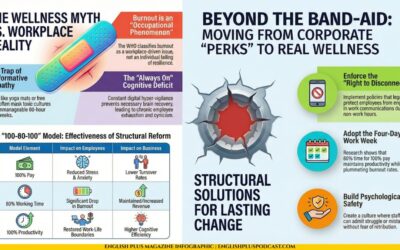
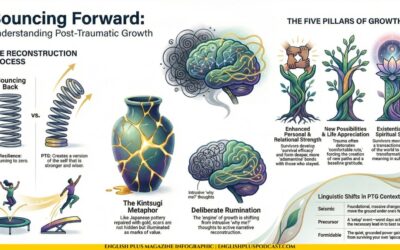
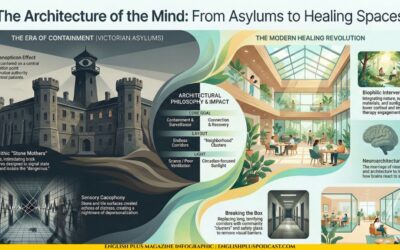



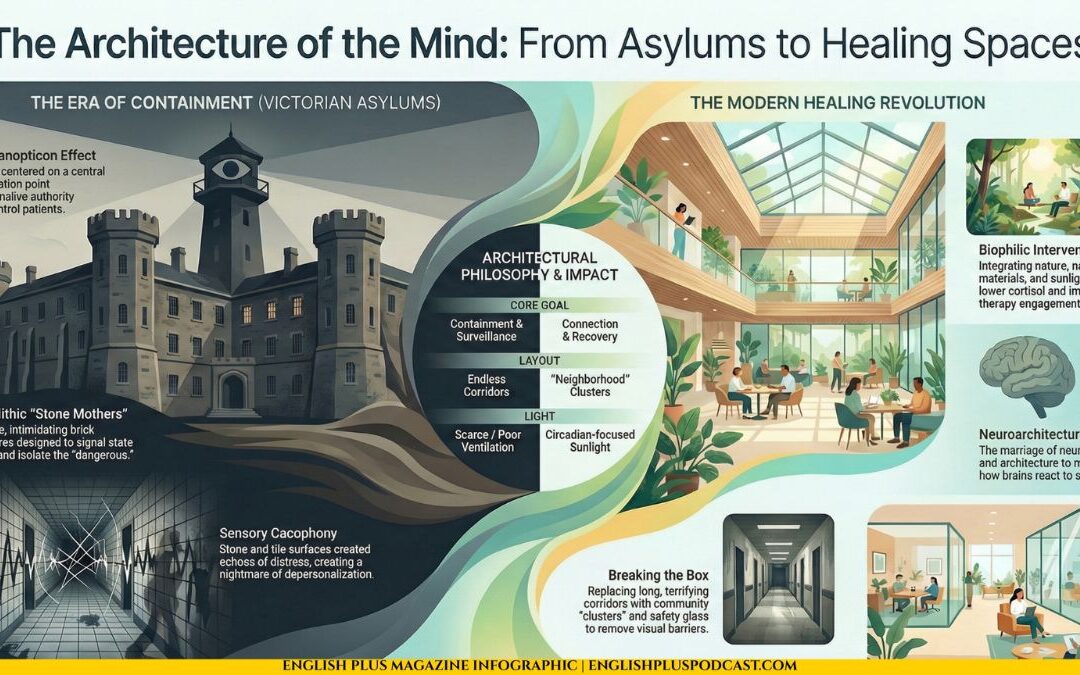

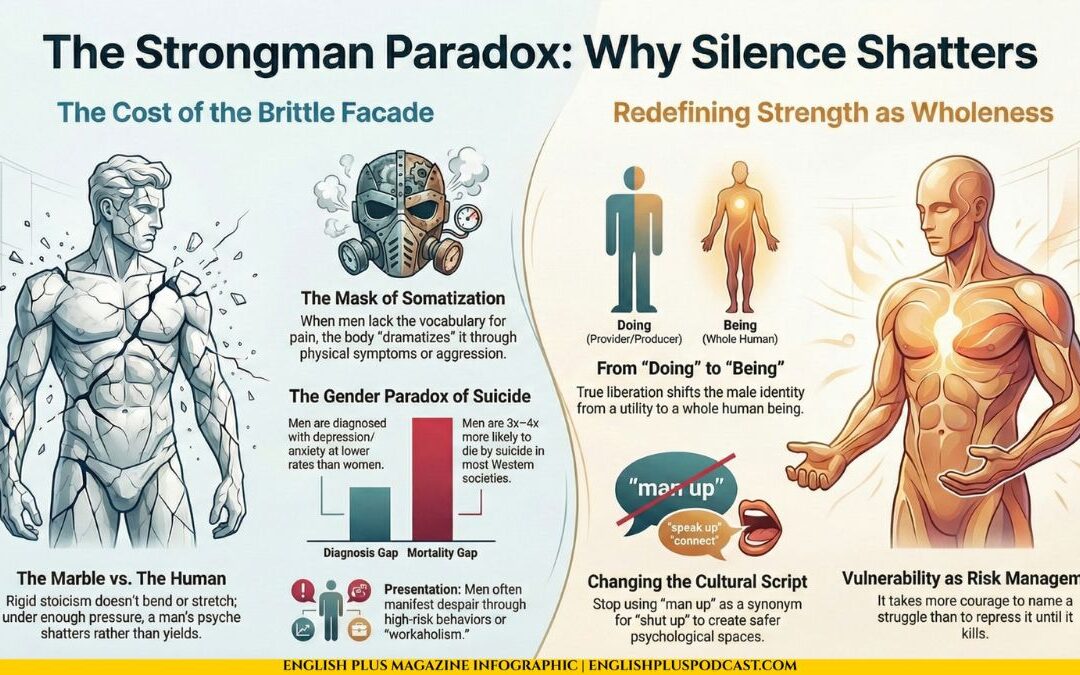
0 Comments